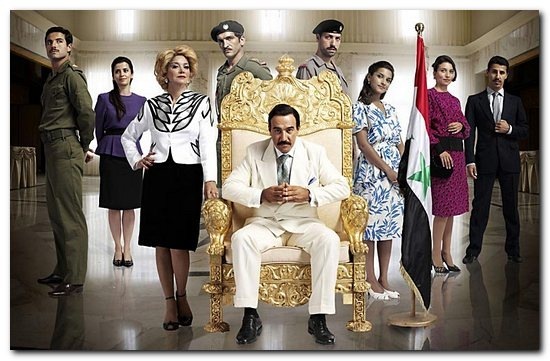House of Saddam is a four part HBO-BBC Television series that runs for a neat 4 hours, and dramatizes the last 27 years of Saddam Hussein’s life in power – from his forcing of the then ailing President al-Bakr to resignation in 1979, and finally to his sentencing to death in 2006.
Watching this series reminds me of other character biopics I’ve watched and occasionally blogged about here. There was The Last King of Scotland which starred Forest Whitaker and James McAvoy. Whitaker pulled a life-time performance as brutal dictator Idi Amin – and won the Best Actor award for it – I’ll blog about this film sometime. There was also the several film and TV dramatizations of Elizabeth I, and finally of Henry VIII most recently in The Tudors.
Though both House of Saddam and The Tudors are both BBC productions and based on controversial historical leaders with brutal dispositions, they couldn’t be more dissimilar. I’ve blogged about The Tudors before here: it was all flash but with barely enough substance to justify its huge budget, long running length and over-the-top acting in the title role.
Put simply, you could be spending 10 hours of your time watching a season of The Tudors, but learn just (maybe) an hour material on the on-goings of the Tudor court then. The rest of the nine hours is spent either ogling at the gratuitous nudity and sex scenes or the medieval version of a Parisian fashion catwalk with costumes after costumes getting paraded.

I found Saddam on the other end of the scale: it’s extremely compact even at its 4 hours running length. The pacing is relentless, and at many points in time it feels as though the production had just barely sufficient screen time to present but the most abstracted viewpoints of significant events.
My familiarity with the historical events are largely centered on from about 1990 onwards and not in the earlier years of Saddam’s presidency, and the script does not engage in extraneous dialog or conversations to relate a perspective or tell of yet another incident in the time line.
The underlining reasons for the Iraq invasion of Kuwait is distilled from several (e.g. Saddam’s belief that Kuwaiti land really belonged to Iraq) to two: that Kuwait was consciously price-cutting oil and making it impossible for Iraq to financially recover from the losses from the Iran-Iraq war, and also that Kuwait was stealing Iraqi oil. And even these significant developments that created tension between the two countries are given just short scenes before the TV series has to move to the next scene.
Concluded in the next post.
Recent comments